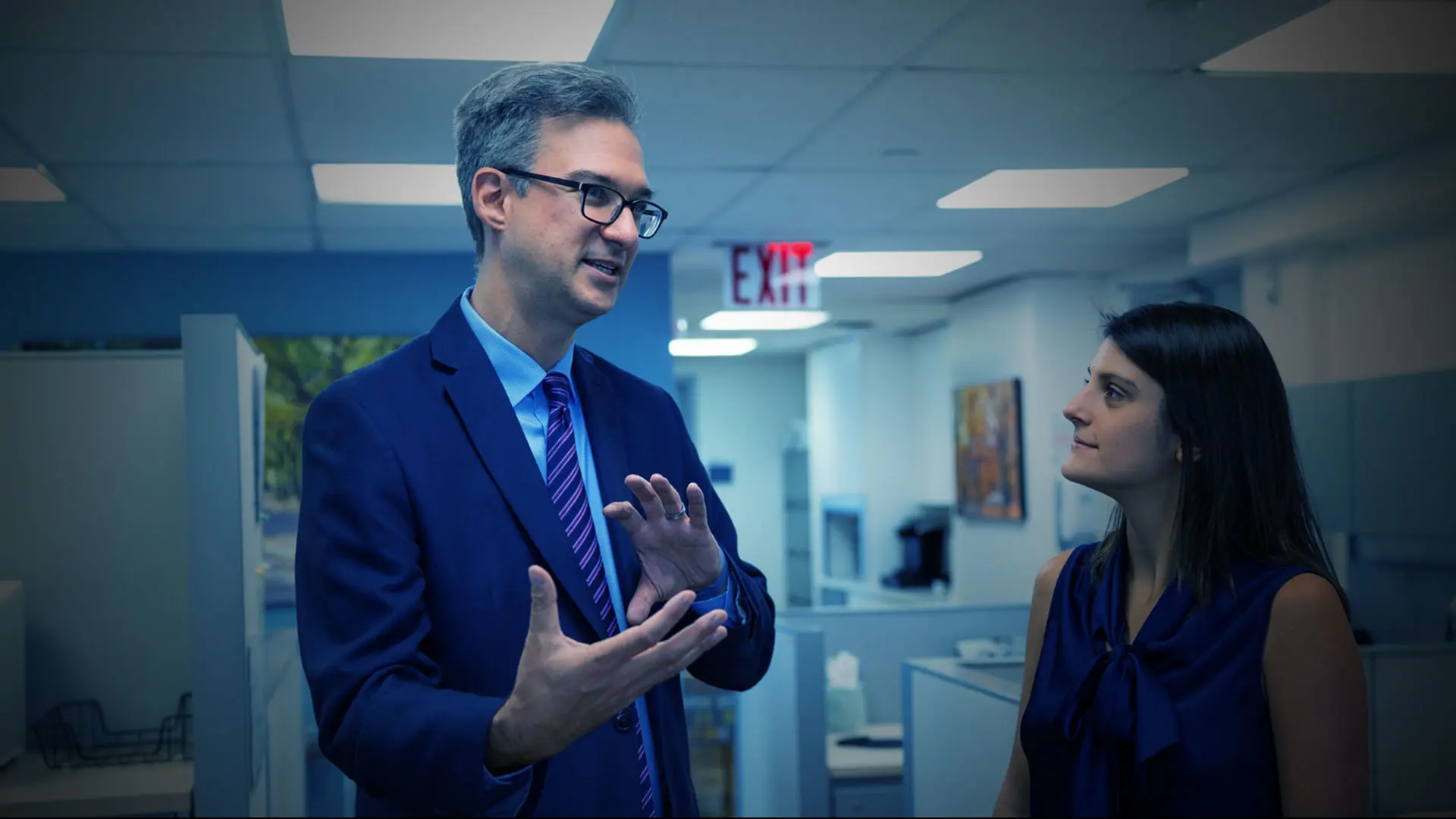Even as Mount Sinai Beth Israel moves toward closure of its inpatient campus on 16th Street, its modern outpatient sites across a wide swath of downtown Manhattan are more vital than ever to the Mount Sinai Health System. They offer a vast range of primary and specialty care under one roof, with high-quality, innovative medicine informed by Mount Sinai’s backbone as an academic medical center.
“We’re expanding and improving our outpatient platform to make sure patients are getting the specialized care and social services they require,” says Matthew Weissman, MD, MBA, Chair of the Department of Medicine for Mount Sinai Beth Israel and Downtown. “And we’re constantly finding new ways to deliver that care where they need it, whether it’s at our renovated Union Square site, our newly opened Mount Sinai-Behavioral Health Center, or through a growing network of primary care practices across downtown.”
With more than 30 medical practices, imaging suites, a pharmacy, and an urgent care clinic, Mount Sinai-Union Square has truly stepped up to meet the clinical demands of the diverse community it serves. Sometimes described as a “hospital without beds,” the huge facility has co-located primary care physicians and medical subspecialists on the same floor for the convenience of patients, as well as to promote collaborative care by its multidisciplinary teams. Patients who need a CT scan, for example, can simply walk up a floor, or down a floor, for physical therapy.
When the Union Square facility, just steps from one of the city’s subway hubs, took over Mount Sinai’s sleep disorders program in the summer of 2022, site leaders saw another opportunity to cater to patients. They actively promoted a new generation of mobile sleep-monitoring kits that individuals can take home to test for obstructive sleep apnea, instead of committing to an overnight stay in a sleep lab. Once the data are uploaded to the device, they are read and analyzed by a specialist at the sleep disorders center, with results relayed to the patient within weeks, down from months under the sleep lab regimen. Presented with this attractive alternative, patients in growing numbers have gravitated to the take-home kits, increasing the hospital’s diagnoses of a sleep disorder with potentially serious health consequences.
The $140 million Mount Sinai-Behavioral Health Center in Lower Manhattan takes the concept of patient-sensitive health care to a new level, serving as a “one-stop shop” for mental health care, substance use treatment, and primary care. Specifically, the new center—representing the largest private investment in mental health in the history of New York State—integrates general outpatient mental health and substance-use disorder treatment services with primary care services, providing seamless access and comprehensive care for its patient population.
“We’ve responded to the needs of a community that’s often underserved by primary care doctors by placing full-time hospitalists and internists at our Behavioral Health Center,” notes Dr. Weissman, who is a Professor of Medicine, and Pediatrics, at the Icahn School of Medicine at Mount Sinai. “And if patients there require consultation with an infectious disease, gastroenterology, endocrinology, or other specialist, we’ll use telemedicine to conveniently link them to Mount Sinai Beth Israel or Mount Sinai-Union Square. That’s how we’re effectively managing resources among different sites on behalf of a typically high-needs patient population.”
Sensitivity to patient needs is evident in other notable ways within Mount Sinai Beth Israel’s realm. For example, Danielle Loeb, MD, MPH, a primary care physician with experience in treating transgender patients, was recently hired and has begun training residents in providing culturally and medically appropriate care to this growing population. In addition, several hospitalists serve as advocates for Chinese-speaking patients—breaking down language and cultural barriers for them and making sure they are connected to the right doctors and social services within the hospital and the health care community.
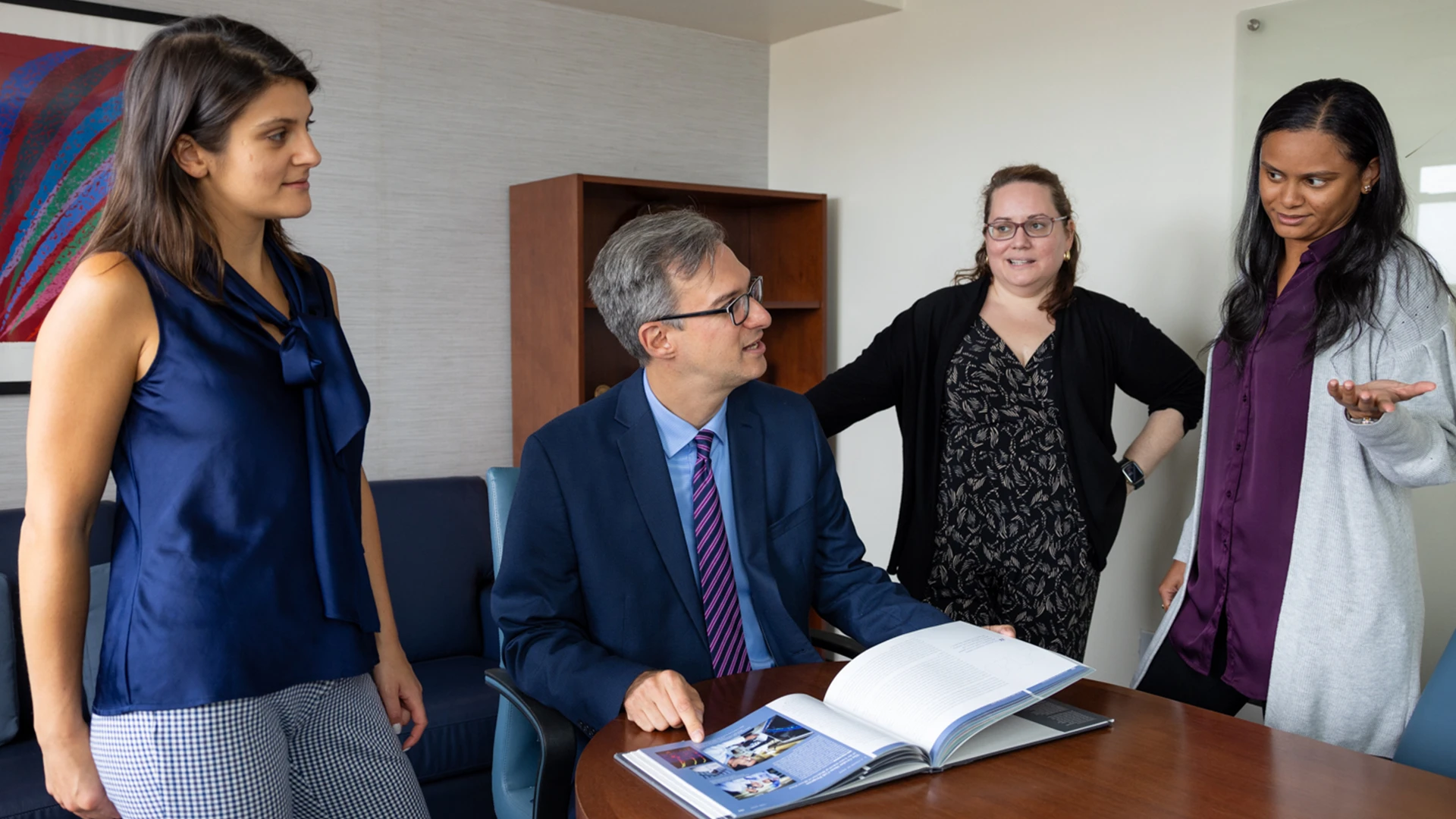
From left, Chief Resident Natasha Qureshi, MD; Matthew A. Weissman, MD, MBA; and residency program staff members Michelle Torres-Avelar and Denny Ayala Reyes review orientation materials for new residents.
“Even when these hospitalists aren’t directly treating Chinese-speaking patients, they’ve made it a point to go to the ICU to see them and family members to help broker, in some cases, end-of-life conversations, or to make sure there’s continuity of care with doctors in the community,” says Dr. Weissman. “It’s that kind of personalized care and commitment that strongly defines Mount Sinai Beth Israel and makes us feel very much a part of the community.”
That connection extends to individuals who are still experiencing symptoms that originated during COVID-19. Mount Sinai Beth Israel is home to the Center for Post-COVID Care, treating about 50 patients a week with such lingering health issues as shortness of breath, headaches, dizziness, and “brain fog,” which can include memory loss and difficulty focusing. The Center was the first in the country to treat so-called long COVID cases when it opened in mid-2020.
“Though the volume and intensity of COVID-related illness have since diminished, we’re still seeing patients in our clinic who have failed to get better,” notes Zijian Chen, MD, Associate Professor of Medicine (Endocrinology, Diabetes and Bone Disease) and Director of the Center for Post-COVID Care. “We use an array of imaging and clinical tools and the knowledge we’ve acquired to diagnose and treat their conditions, including referring many to our rehabilitation specialists who are often able to restore a normal quality of life.”
Featured
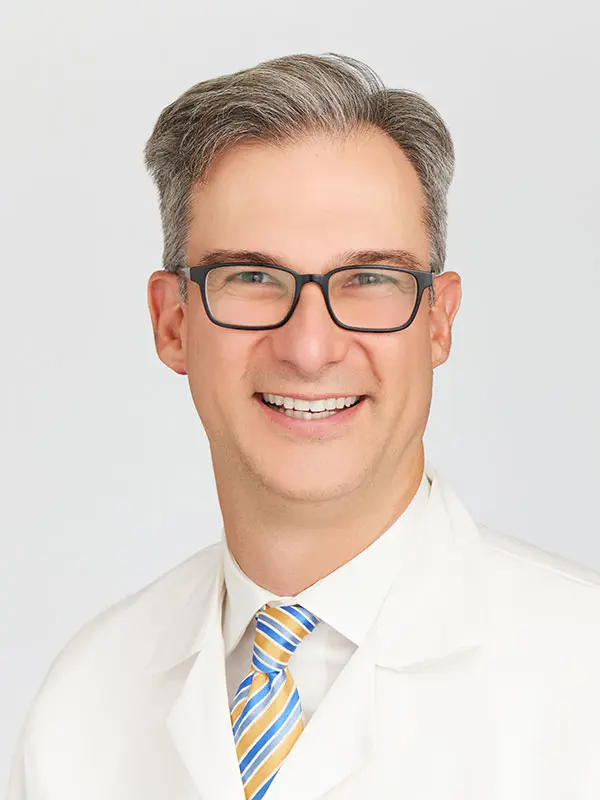
Matthew Weissman, MD, MBA
Professor of Medicine (General Internal Medicine), and Pediatrics; Chair, Department of Medicine, Mount Sinai Beth Israel
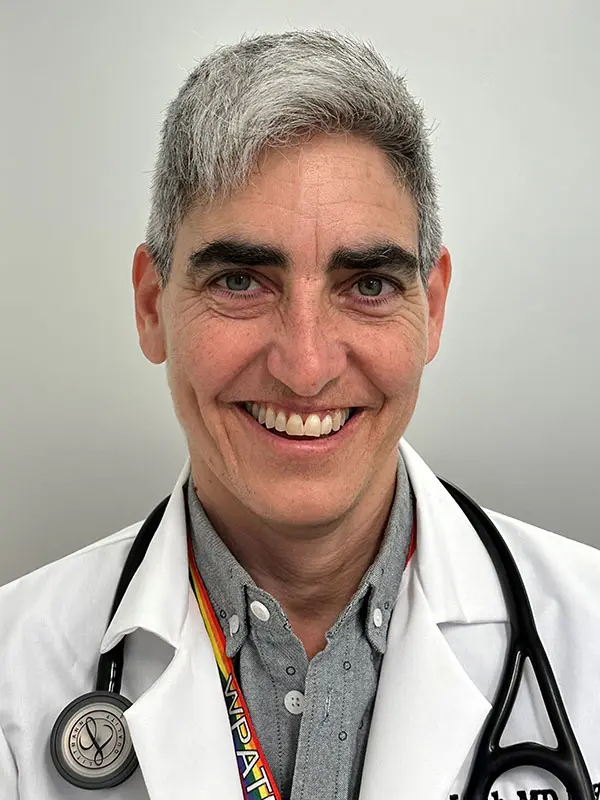
Danielle Loeb, MD, MPH
Associate Professor of Medicine (General Internal Medicine)
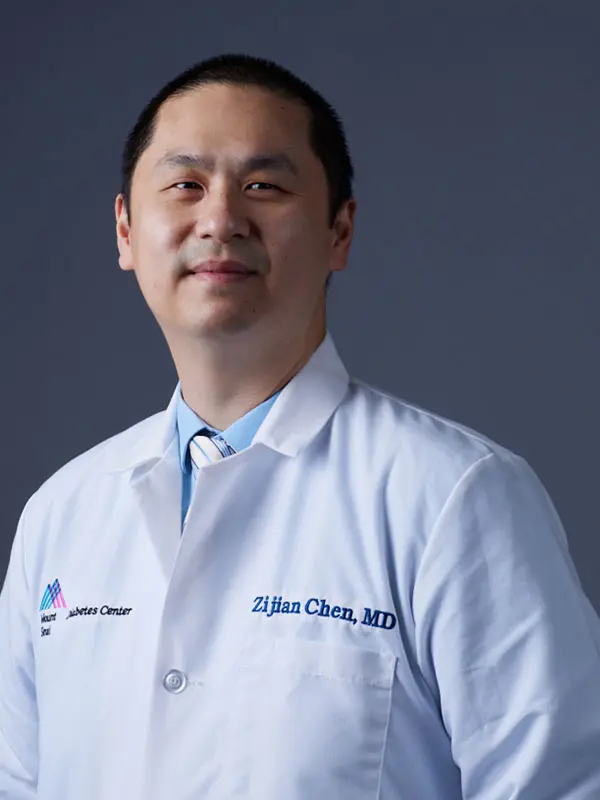
Zijian Chen, MD
Associate Professor of Medicine (Endocrinology, Diabetes and Bone Disease)
